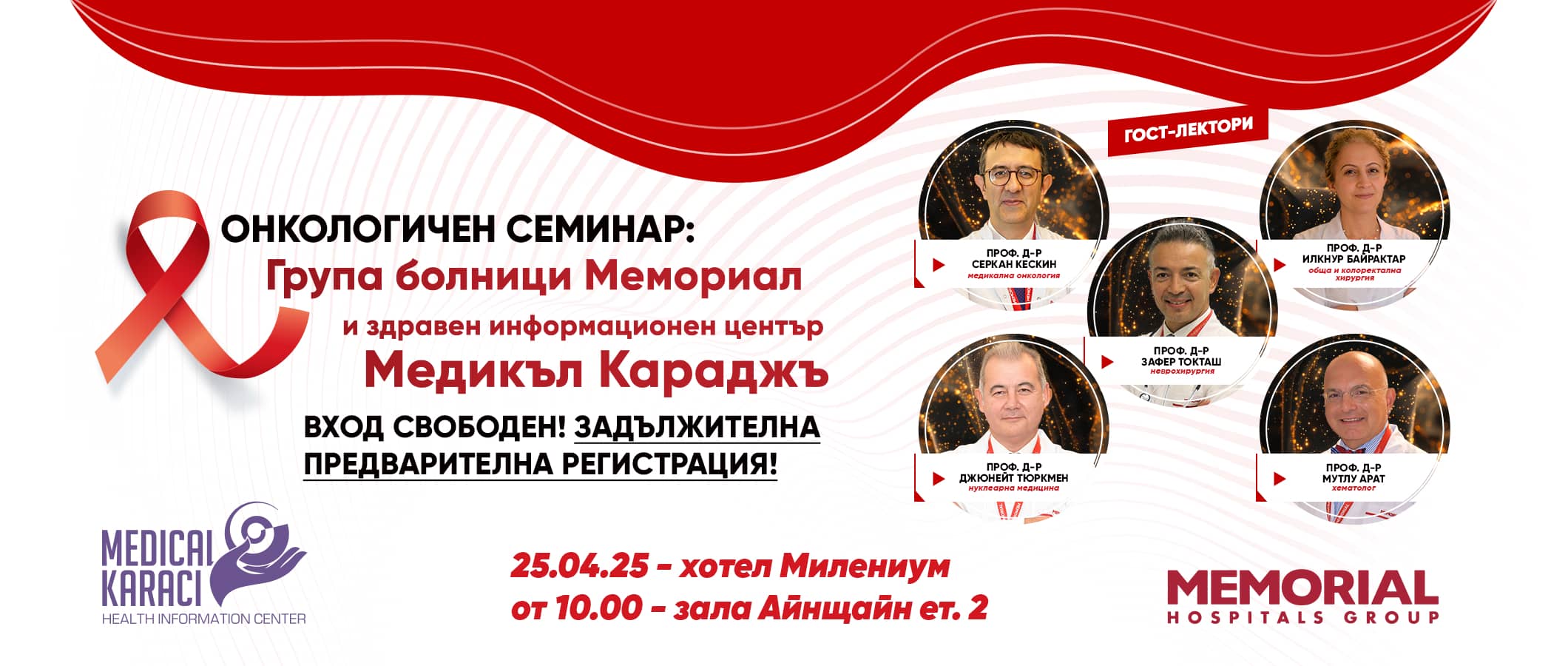Cardiosurgery is an independent branch of medicine. We can define cardiac surgery as a subspecialty of surgery that is responsible for diseases of the heart.
Cardiac surgeons deal with the treatment of congenital and acquired heart problems, blood vessel problems and more.
Cardiovascular surgery, also called heart surgery, involves any surgical procedure involving the heart or the blood vessels carrying blood to and from the heart. We talk about it when serious diseases are present, such as:
- Atherosclerosis
- Congenital heart defects
- Coronary heart disease - CHD
- Endocarditis
Within cardiac surgery, some of the more common cardiac operations include:
- Aorto-coronary bypass
- Heart valve replacement (with mechanical or biological valve)
- Reconstruction of a damaged valve
- Placement of pacemaker(PM) or implantable cardioverter
What are the types of heart surgery:
- Open heart surgery - The patient's chest is opened through an incision to allow the surgeon access to the heart
- Minimally invasive surgery - a tiny incision is made in the chest wall, which is about 1-2 cm. A special camera is used to enter through the small access and special instruments are used
- Robotic heart surgery - this is again a type of minimally invasive surgery. Again, several very small incisions are made in the intercostal spaces. Special surgical instruments are attached to robotic arms and a camera is also used for monitoring. The surgeon in this case controls the entire process, and with the help of the robotic movements, every action is performed with extreme precision.
Apart from the fact that robotic surgery is a new generation and a new achievement in the development of medicine, we also see some patient benefits here. These include less bleeding, shorter hospital stays, less traumatic and painful surgery for patients, and a reduced risk of infection.
Preparing for heart surgery
In the direction of cardiac surgery, before any heart surgery, it is important to observe certain rules:
- Smokers to stop using cigarettes
- Stress to be reduced to a minimum
- Overweight patients have an increased risk and for this it is good to reduce weight through a good diet and exercise regime
- It is necessary to visit a dental specialist before heart surgery to avoid the risk of infection
- Your supervising doctor will explain which medications should be stopped before surgery
Patients after cardiac surgery are taken to intensive care for observation. The stay there varies, depending on the procedure performed and the patient's condition. From the intensive care unit, the patient is transferred to the surgical ward and stays in the hospital room for several days. Before discharge, a team of medical specialists performs control blood tests, ECG and echocardiography.
The patient is discharged with prescribed therapy (medication) and given a diet and exercise regime to follow in the postoperative period.
Follow-up examinations are mandatory within a month of discharge and periodic meetings with a cardiologist are also held to monitor the general condition and adjust therapy if necessary.
Risk factors for cardiovascular disease:
- Smoking
- Increased alcohol use
- Lack of physical activity
- Overweight
- Increased blood pressure
- Elevated cholesterol
It is important to know what the risk factors are and to strive to maintain good health by excluding harmful habits from our daily routine.
A balanced lifestyle, regular check-up blood tests and less stress will help everyone keep their heart in excellent health.









